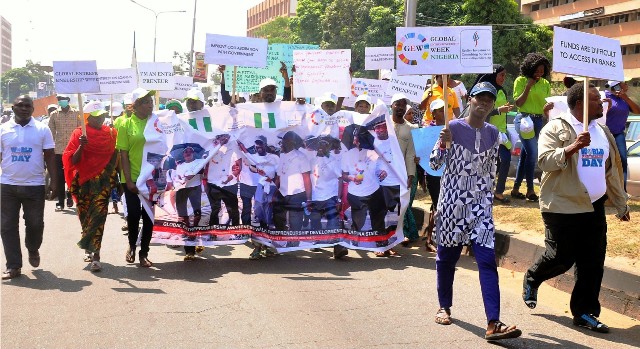Business
Stakeholders Laud FG’s MSMEs Clinic Initiative

Business stakeholders have commended the Federal Government for the initiative of Micro, Small and Medium Enterprises (MSMEs) enlightenment clinics across the country.
The stakeholders, who participated in the clinic, told newmen in Abuja that the session gave them the opportunity to interact with relevant business regulations.
The MSMEs clinic is an initiative of the Presidency and it is aimed at addressing problems of enterprises across Nigeria.
The clinic is to increase the efficiency of MSMES by providing solutions through time-saving approach.
Managing Director, Electrical-Control Devices, Mr Lawrence Nwachukwu, said that access to most of the business regulators had been one of the challenges faced by small business owners.
Nwachukwu said with the clinic, the regulators were available and ready to provide services that would be beneficial to MSMEs.
“Most times, it is difficult to have access to the regulators but with this clinic, it was very easy and so, we will only follow up,” he said.
He advised that for small business to grow properly, relevant authorities must be interested in Made-in-Nigeria products.
Nwachukwu said that although some of the products may not be up to standard, they should be encouraged through patronage, adding that whoever wanted integrity would produce good quality products.
“The truth is that business is all about integrity and good name,” he said.
Mr Auwal Ibrahim, Director, Solar Power System Limited, said that he was able to meet some financial companies that promised to assist in lifting his business.
Ibrahim said that the business clinic also created an opportunity for participants to meet prospective local and foreign buyers who would market the products internationally.
He said that the clinic was a good ground to empower players in the MSME sector, which in turn would help the country to achieve sustainable economic growth and development.
On her part, Mrs Halima Musa, a Shea Butter producer, said the clinic created a forum where business owners were sensitised on policies, programmes and initiatives designed by the Federal Government for supporting and encouraging MSMEs.
Musa called on the Federal Government to sustain its empowerment plan for the MSMEs in order to improve small businesses in the country.
“I tell you, MSMEs are the largest employers of labour in the country, and have the prospect of employing more if supported,” she said.
Musa added that small business owners faced the challenges of access to fund, multiple taxation, inefficient power supplies and lack of basic knowledge to start and run a good business.
According to her, the clinic was an indication that the Federal Government would give local manufacturers a sense of belonging.
A businesswoman, Ms Ngozi Okafor, advised that the Federal Government should carry out such clinics after five or six years to properly monitor the progress.
Okafor said that the initiative should not end as other government programmes, without follow-ups and monitoring.
Business
NCDMB, Jake Riley Empower 250 Youths On Vocational Skills

Business
NUJ Partners RSIRS On New Tax Law Education

Transport
Nigeria Rates 7th For Visa Application To France —–Schengen Visa

-

 Maritime8 hours ago
Maritime8 hours agoCustoms Hands Over Seized Cannabis Worths N4.7bn To NDLEA
-

 Maritime9 hours ago
Maritime9 hours agoOver 6,223 Seafarers Abandoned In 2025 – Says ITF
-

 News11 hours ago
News11 hours agoNLC Threatens Nationwide Protest Over Electoral Act Amendment
-

 News11 hours ago
News11 hours agoTinubu Embarks On Two-Day State Visit To UK, March 18
-

 Politics8 hours ago
Politics8 hours agoI DEFECTED OUT OF CONVICTION …NO ONE COULD’VE IMPEACHED MY LATE DEPUTY ~ DIRI
-

 Politics8 hours ago
Politics8 hours agoWe’ve Not Recognized Any PDP Faction — INEC
-

 Environment6 hours ago
Environment6 hours agoRivers State Government Suspend Fire Service Collection Levies
-

 Sports7 hours ago
Sports7 hours agoArsenal Women End Man City’s Invincibility

